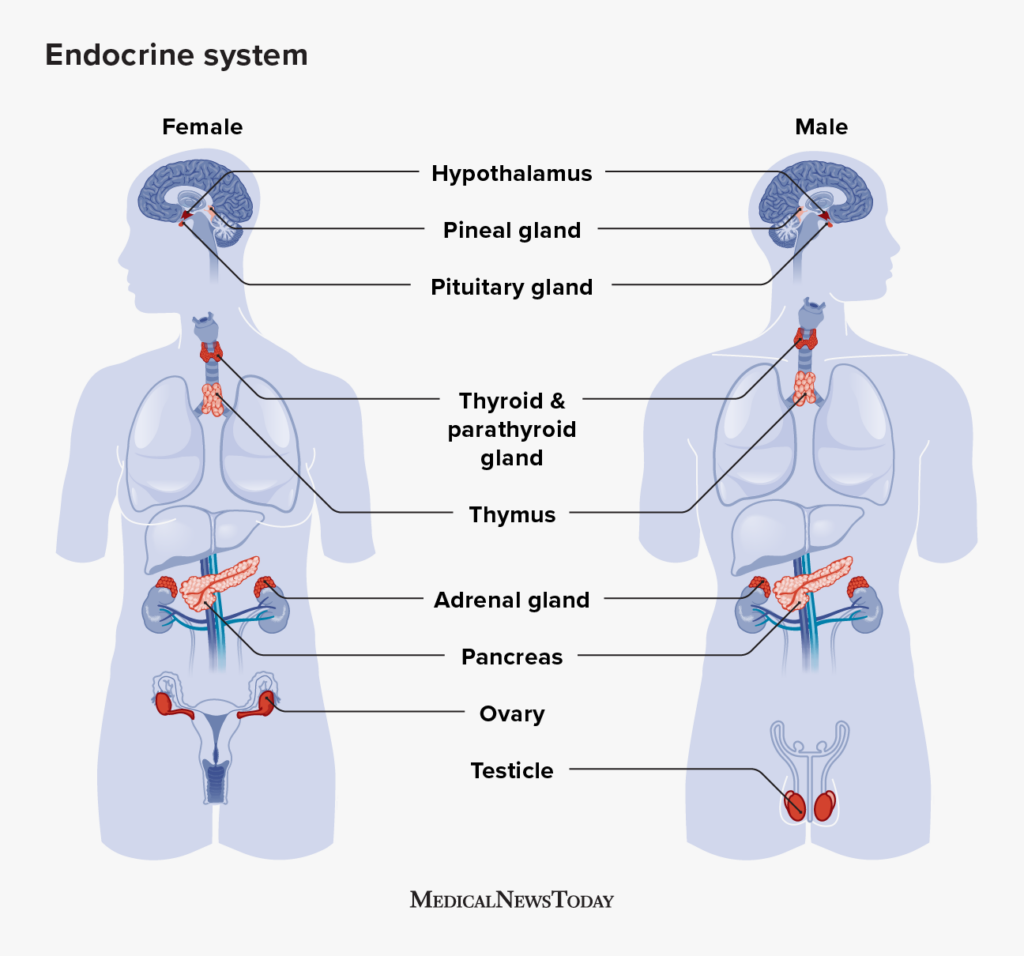Texas Endocrinology: State-of-the-Art Hormone Healthcare
Wiki Article
The Science Behind Hormonal Agent Guideline: Insights From an Endocrinologist
The Science Behind Hormonal Agent Law: Insights From an Endocrinologist provides a comprehensive exploration of the complex processes entailed in hormonal agent law. Whether you are a clinical expert seeking a deeper understanding of endocrine feature or a private interested in learning concerning the science behind hormonal agent guideline, this book is an invaluable resource.Hormonal Agents and Their Features
Hormones play essential functions in the law and sychronisation of different physiological procedures within the body. These chemical messengers are generated by endocrine glands and are released right into the bloodstream, where they take a trip to target cells or organs to apply their results. The functions of hormonal agents are diverse and incorporate practically every facet of human physiology.One of the main functions of hormonal agents is to preserve homeostasis, which is the secure interior setting required for the body to operate optimally. For instance, insulin, a hormonal agent created by the pancreatic, regulates blood sugar levels by advertising the uptake and storage of glucose in cells. Another hormonal agent, cortisol, helps the body respond to stress by increasing blood glucose levels and suppressing the body immune system.
Hormones likewise play important duties in development and advancement. Growth hormonal agent, produced by the pituitary gland, promotes the development of bones and cells, while thyroid hormonal agents manage metabolic process and affect the development of the nerves - Best endocrinologist near me. In addition, reproductive hormonal agents, such as estrogen and testosterone, are accountable for the development and upkeep of second sex-related qualities and the regulation of the menstruation
The Endocrine System: A Review
Playing an essential role in the guideline and sychronisation of physiological processes, the endocrine system is an intricate network of glands that produce and release hormones into the bloodstream. These glands, consisting of the hypothalamus, pituitary gland, thyroid gland, adrenal glands, pancreatic, ovaries, and testes, secrete hormones that work as chemical carriers, influencing various bodily functions. The endocrine system works in conjunction with the worried system to keep and manage homeostasis, making sure that the body's interior atmosphere remains secure.The hypothalamus, situated in the mind, is considered the master regulatory authority of the endocrine system. It creates hormones that hinder the launch or stimulate of hormones from the pituitary gland, which in turn regulates the task of various other endocrine glands. The thyroid gland, situated in the neck, generates hormonal agents that regulate metabolic process and energy equilibrium. The adrenal glands, located atop the kidneys, create hormonal agents that help the body respond to stress and regulate blood pressure.

Regulation of Hormonal Agent Manufacturing
The policy of hormone production involves an intricate interaction between numerous glands and responses devices within the endocrine system. Hormones are chemical carriers that play a critical role in maintaining homeostasis and working with numerous physiological processes in the body. The manufacturing of hormonal agents is tightly regulated to ensure the correct functioning of the endocrine system.The hypothalamus, located in the mind, works as a key regulatory authority of hormone manufacturing. It releases hormones that inhibit the production or promote of hormonal agents by the pituitary gland, which is typically referred to as the "master gland" of the endocrine system. The pituitary gland, subsequently, produces hormones that act on various target glands throughout the body, stimulating them to generate and release specific hormones.
Feedback mechanisms likewise play a vital role in hormone guideline. When hormone degrees rise above or fall listed below the optimal variety, the body sets off systems to either decline or increase hormonal agent production, specifically, to bring back balance.
Responses Loops in Hormonal Agent Law
Responses loopholes play a vital function in the policy of hormone manufacturing. These loops entail a series of communications in between the endocrine glands, hormonal agents, and target body organs to keep homeostasis in the body. There are 2 sorts of feedback loopholes: adverse responses and favorable responses.When hormone degrees climb above a specific limit, the hypothalamus in the mind indicates the pituitary gland to lower hormone manufacturing. Conversely, when hormone degrees go down below the threshold, the hypothalamus stimulates the pituitary gland to enhance hormone production, recovering equilibrium.
Positive responses loops, on the other hand, intensify hormone manufacturing. This happens when a hormone boosts the launch of more of the very same hormone, causing a quick increase in its levels. Favorable comments loops are less usual in hormone policy and are typically involved in specific physiological processes, such as giving birth and lactation.
Aspects Affecting Hormone Equilibrium
Elements influencing hormonal agent balance consist of dietary options, way of living practices, and environmental direct exposures. These variables can have a significant influence on the delicate equilibrium of hormones in the body, influencing different physiological processes and overall health.Dietary options play a critical role in hormonal agent policy. Eating a balanced diet plan that includes a range of nutrients is necessary for keeping hormonal agent balance. Specific nutrients, such as omega-3 fats, vitamins, and minerals, are specifically vital for optimal hormonal agent feature. On the other hand, a diet regimen high in refined foods, fine-tuned sugars, and undesirable fats can interfere with hormonal agent levels and lead to imbalances.
Adequate sleep is critical for hormonal agent production golden valley medical center and guideline, as interrupted sleep patterns can lead to inequalities. In addition, persistent stress and anxiety can this link dysregulate the hypothalamic-pituitary-adrenal (HPA) axis, an essential player in hormonal agent policy, leading to a cascade of hormone discrepancies.

Final Thought
In verdict, comprehending the scientific research behind hormonal agent law is necessary for preserving overall health and wellness and wellness. Hormonal agents play vital duties in various bodily functions, and their production is regulated by complex comments loopholes.The Science Behind Hormonal Agent Policy: Insights From an Endocrinologist offers a thorough expedition of the intricate processes included in hormonal agent guideline. It produces hormones that promote or hinder the launch of hormonal agents from the pituitary gland, which in turn controls the activity of various other endocrine glands. It launches hormones that inhibit the production or boost of hormones by the pituitary gland, which is usually referred to as the "master gland" of the endocrine system. The pituitary gland, in go to website turn, creates hormonal agents that act on numerous target glands throughout the body, stimulating them to create and launch specific hormones.
When hormone degrees climb above a specific threshold, the hypothalamus in the mind indicates the pituitary gland to reduce hormonal agent production. (Best endocrinologist in austin)
Report this wiki page